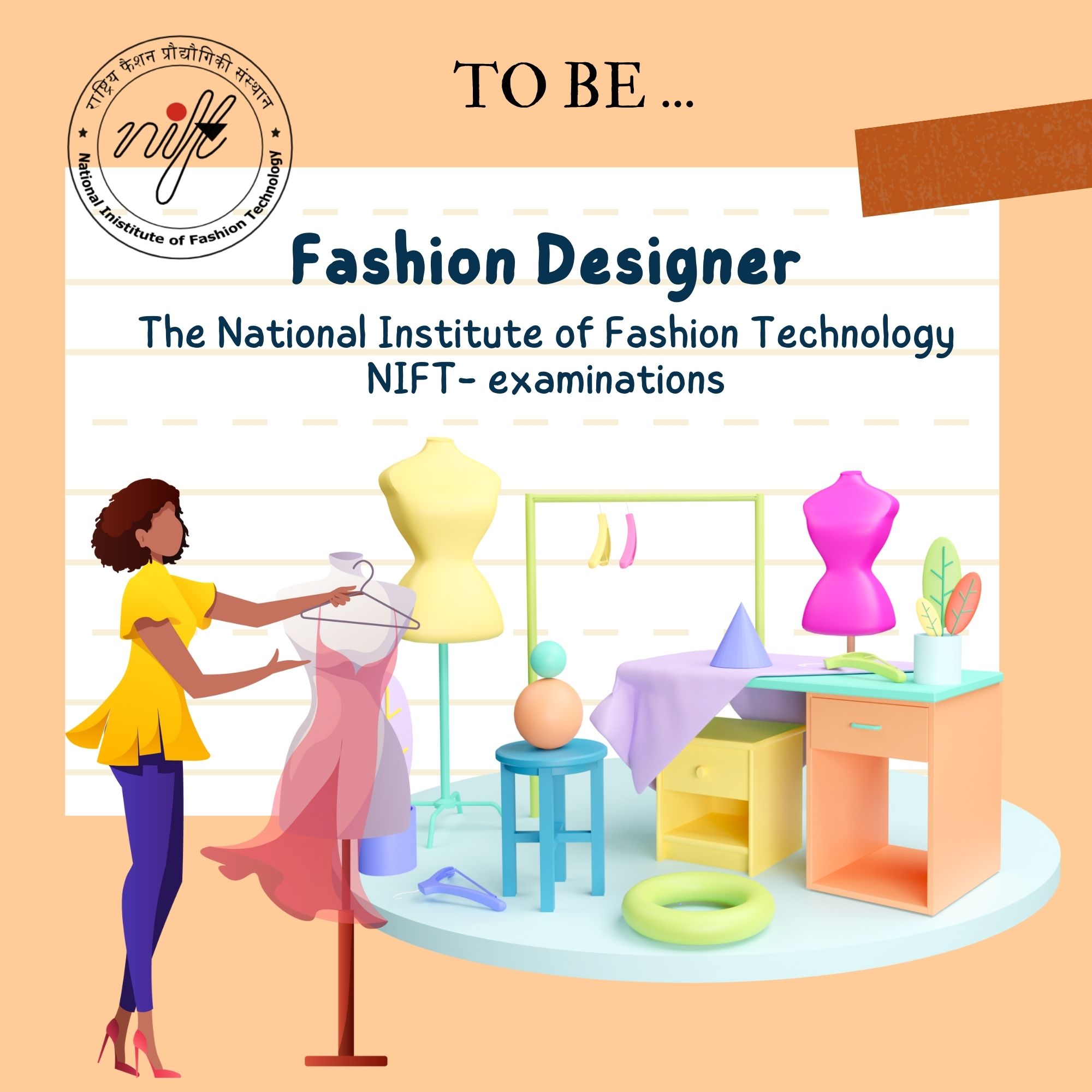Career Guide

Fashion Designer
NIFT, or the National Institute of Fashion Technology, is a premier institution in India dedicated to the field of fashion and design education, research, and training. NIFT offers undergraduate, postgraduate, and doctoral programs in various aspects of fashion and design. Here are some key details about NIFT:
1.Courses Offered:
• NIFT offers a wide range of programs in fashion and design, including:
• Bachelor of Design (B.Des.) programs in disciplines like Fashion Design, Textile Design, Accessory Design, and more.
• Bachelor of Fashion Technology (B.F.Tech.) programs.
• Master of Design (M.Des.) programs.
• Master of Fashion Technology (M.F.Tech.) programs.
• Ph.D. programs in fashion and design-related research areas.
2. Campuses:
NIFT has multiple campuses located in prominent cities across India. Some of the main campuses include New Delhi, Mumbai, Bengaluru, Kolkata, and Chennai.
3. Entrance Examination:
Admission to NIFT programs is highly competitive and is based on the performance in the NIFT Entrance Examination (NIFT Entrance Test). The entrance exam assesses a candidate creative and analytical skills, general knowledge, and aptitude for the chosen program.
Examination pattern
NIFT Entrance Examination Pattern for B.Des. and B.F.Tech. Programs:
a. Test Components:
-Creative Ability Test (CAT): This test evaluates a candidate creativity, observation skills, and design thinking. It may include questions related to drawing, visualization, and design concepts. It is a paper-based test.
-General Ability Test (GAT): This test assesses a candidate general knowledge, current affairs, mathematics, logical reasoning, and English language skills. It is a written test with multiple-choice questions (MCQs).
-Situation Test: After clearing the CAT and GAT, shortlisted candidates are required to appear for a Situation Test. In this test, candidates are given a design problem or situation and are asked to create a 3D model or prototype to address it. The Situation Test evaluates a candidate material handling skills, innovation, and problem-solving abilities.
b. Duration:
• CAT: Usually, 3 hours
• GAT: Usually, 2 hours
• Situation Test: Duration may vary but typically one day.
c. Marking Scheme:
CAT and GAT may have different marking schemes. For example, CAT may be subjective, with evaluation based on creativity and drawing skills, while GAT has MCQs with negative marking for incorrect answers.
d. Weightage:
The final selection is based on a combination of the CAT, GAT, and Situation Test scores. The weightage for each test can vary from year to year and from one NIFT campus to another.
4. Specializations:
NIFT programs offer various specializations and pathways within the field of fashion and design. For example, in the B.Des. program, students can choose specializations like Fashion Communication, Knitwear Design, Leather Design, and more.
5. Industry Connect:
NIFT has strong connections with the fashion and design industry. It often collaborates with industry professionals, fashion houses, and designers to provide students with real-world exposure and opportunities.
6. Placements:
• NIFT is known for its excellent placement record. Graduates often find employment in top fashion and design companies, both in India and abroad.
• The institute has a dedicated placement cell that assists students in securing internships and job placements.
7. Research and Innovation:
NIFT encourages research and innovation in the field of fashion and design. Faculty and students are often involved in research projects and design innovations.
8. Fashion Shows and Events:
NIFT organizes fashion shows, exhibitions, and events where students can showcase their creations and talents. These events provide a platform for students to interact with industry professionals and gain exposure.
9. Alumni:
NIFT boasts a strong alumni network that includes renowned fashion designers, entrepreneurs, and professionals in the fashion and design industry.
NIFT is a prestigious institution for those interested in pursuing a career in fashion and design. Admission to NIFT programs is highly competitive, and candidates must prepare thoroughly for the entrance examination and portfolio assessment. NIFT graduates often go on to have successful careers in various aspects of the fashion and design industry, including fashion designing, textile designing, fashion management, and more.
Click here for the
